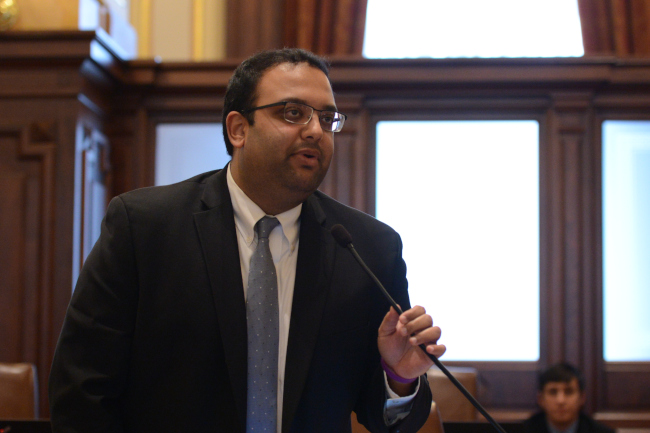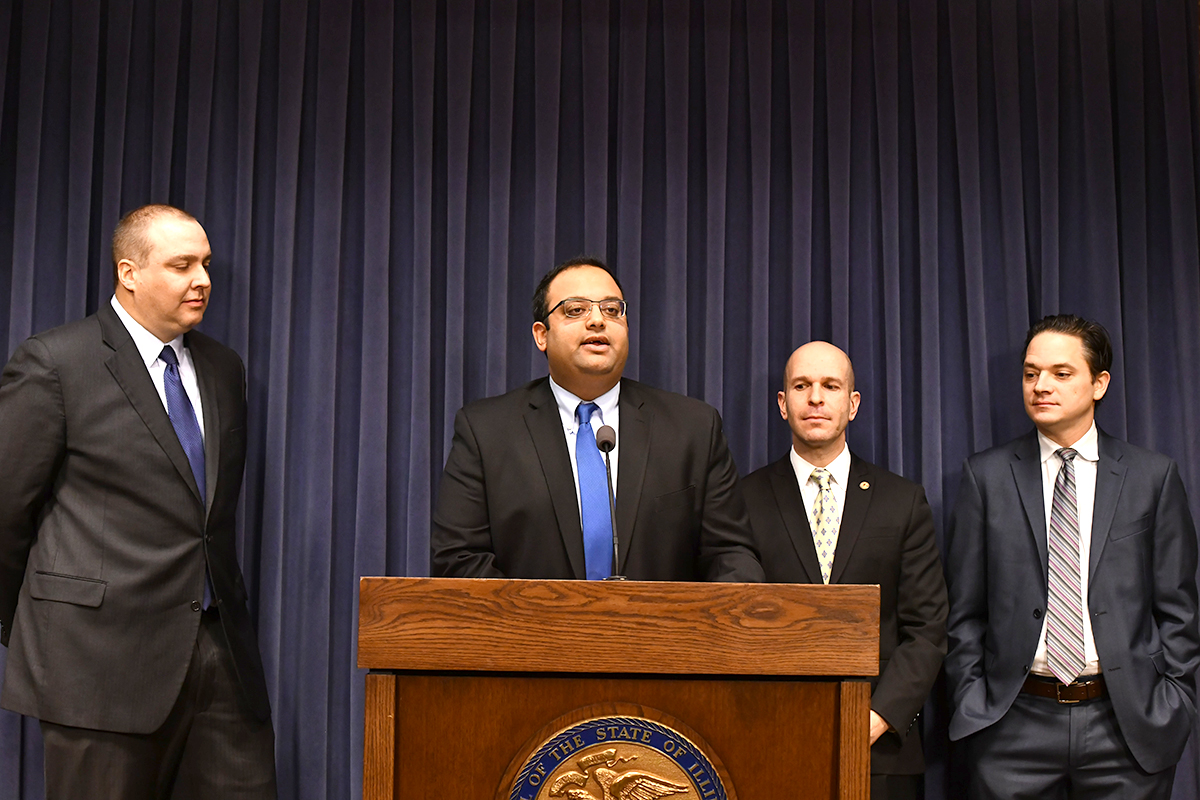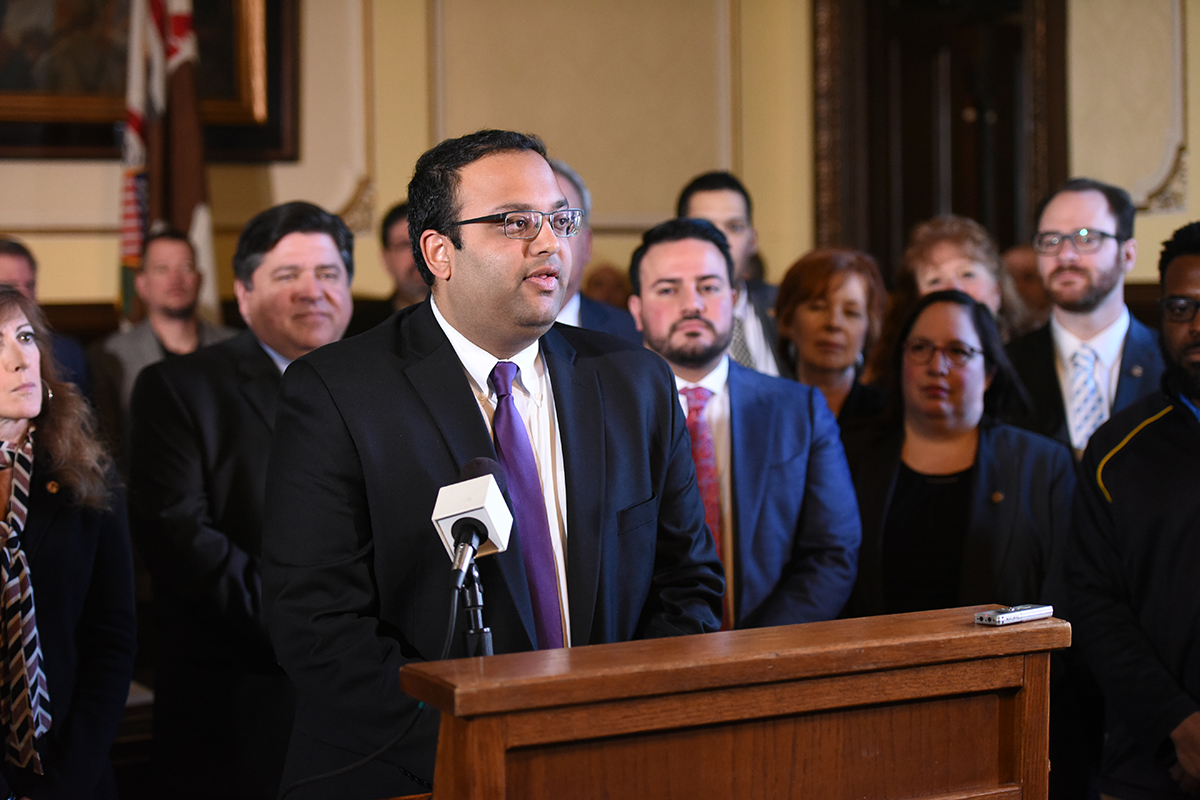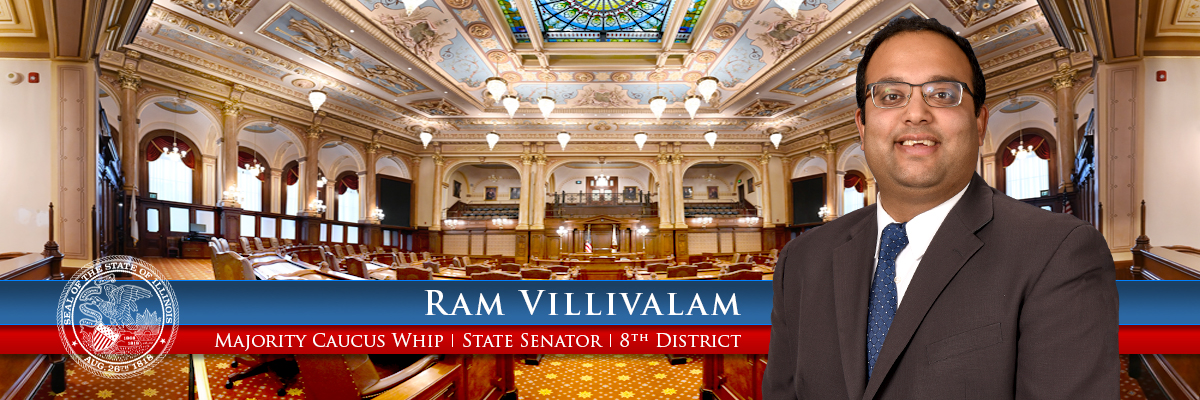- Category: Press Releases
SPRINGFIELD – State Senator Ram Villivalam (D-Chicago) issued the following statement today in response to Governor Pritzker’s State of the State address:
“I commend Governor Pritzker on his commitment to enact sweeping ethics reforms in this legislative session. I am encouraged by his bold reform agenda and fully support his efforts to end the self-dealing practices of corrupt politicians and to start holding elected officials in Illinois accountable. We have a significant amount of work to do to restore public faith in their state government but I pledge to work with the Pritzker administration and members on both sides of the aisle to get these reforms done. The people of Illinois deserve to have lawmakers who are held to the highest ethical standards and rid the cloud of corruption that has hung over Springfield for too long. I’m ready to tackle this issue which is long overdue.”
- Category: Press Releases
 SPRINGFIELD – State Senator Ram Villivalam (D-Chicago) has been appointed Chair of the Senate Transportation Committee by Senate President Don Harmon.
SPRINGFIELD – State Senator Ram Villivalam (D-Chicago) has been appointed Chair of the Senate Transportation Committee by Senate President Don Harmon.
“I will work with Vice-Chairperson Hunter, Minority Spokesperson DeWitte, my other Senate and House colleagues, and Governor Pritzker to create and implement an open, transparent, and accountable process for legislation that will maintain and improve our transportation and infrastructure system in an equitable way,” Villivalam said.
Senator Villivalam’s priorities include:
• Creating and implementing an open, transparent, and accountable process in which the Transportation Committee will operate
• Moving toward a data- and equity-driven model of allocating transportation funds
• Vigilant implementation of last year’s historic $45 billion capital construction plan to ensure we raise the state’s infrastructure rating for the safety of Illinoisans and to maintain the state’s reputation as a transportation hub
• Ensuring systems facilitate inclusion and diversity in state- and local-contracting for the entire industry, not any one company
• Improving and expanding Illinois’ public transportation
The committee is responsible for working on transportation and infrastructure related issues and is expected to meet in February.
- Category: Press Releases

As of January 28, the legislation is filed in New York, Hawaii, Maryland, Florida, Iowa, Illinois, West Virginia and New Hampshire.
The legislation would bring each state into a formal agreement with other states to phase out corporate giveaways through two main provisions. First, member states agree to end the practice of offering tax breaks to a facility located in another member state as an inducement for the company to move. Second, member states participate in a national board of appointees to discuss and propose enhancements to the existing agreement for future consideration by each state.
“Corporate giveaways are one of the least effective uses of taxpayer dollars for job creation because companies too frequently take tax incentives to choose locations that they would have chosen anyway,” Senator Villivalam said. “So instead of creating additional jobs, they simply deplete a community’s tax base instead, which often affects communities who can least afford it. This legislation is a good first step in phasing giveaways out and in creating a level playing field for all employers.”
“While our state budget is already starved by excess tax breaks, we want to build support over time and appeal to our colleagues who don’t wish to unilaterally disarm in the giveaway game.” said Representative Morgan. “This is a reasonable go-slow approach, and can help us refocus our state budget on priorities such as education and human services funding.”
Please see EndTaxGiveaways.org for links to the legislation in other states as well as the names of legislators who are supporting the effort.
- Category: Press Releases

More Articles …
Page 75 of 86





